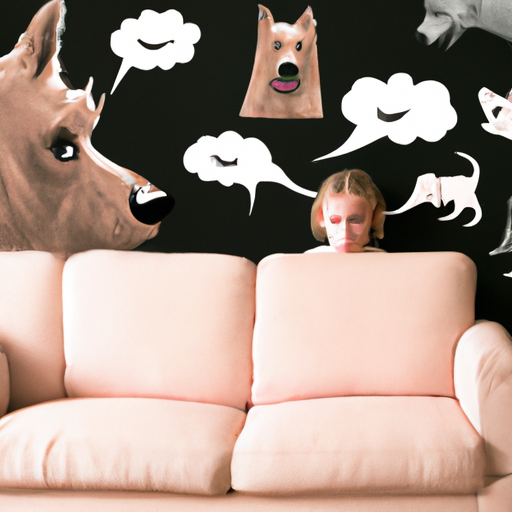In a world where dogs are hailed as “man’s best friend”, it can be challenging to admit you’re scared of them. If you find yourself asking, “why am I scared of dogs?”, you’re not alone. This fear, known as cynophobia, is a common phobia that affects people of all ages. Let’s delve deeper into the root of this fear, discuss coping strategies, and reveal how to regain your confidence around our four-legged companions.
- Table of Contents
- Understanding Cynophobia: The Fear of Dogs
- Causes of Cynophobia
- Consequences of Cynophobia
- Coping Strategies for Overcoming Cynophobia
-
Frequently Asked Questions
-
Key Takeaways
- Cynophobia is a common yet under-discussed fear.
- Traumatic experiences, cultural beliefs, and family attitudes can cause cynophobia.
- Cynophobia can restrict social interactions and lifestyle choices.
- Exposure therapy, cognitive behavioral therapy, and self-help techniques can help manage cynophobia.
Understanding Cynophobia: The Fear of Dogs
Cynophobia, the fear of dogs, can range from mild unease to a severe phobia, causing panic attacks and daily life disruptions. It’s an under-discussed yet prevalent issue, affecting nearly 9% of the US population, according to a study by Harvard Health Publishing.
A common misconception is that all cynophobes despise dogs. However, many individuals with this fear wish they could interact with dogs without anxiety. They understand that their fear is irrational, which can often lead to feelings of guilt or embarrassment.
Causes of Cynophobia
Cynophobia, like any other phobia, can stem from various factors. Let’s explore some of the most common triggers.
- Traumatic Experiences: An unpleasant encounter with a dog, particularly during childhood, is the most common trigger. This could involve a dog attack, a threatening bark, or even witnessing someone else’s fear.
- Cultural and Family Attitudes: If your family or culture perceives dogs negatively or fears them, you’re likely to inherit these beliefs.
- Lack of Familiarity: Never having interacted with dogs can create fear of the unknown.
Consequences of Cynophobia
The fear of dogs can significantly impact your life, restricting where you go and who you spend time with. You might avoid places where dogs are likely to be, such as parks, or even decline invitations to dog-owners’ homes. This can strain relationships and create feelings of isolation.
In severe cases, individuals might experience panic attacks when encountering dogs, leading to symptoms like rapid heart rate, sweating, trembling, or difficulty breathing. This crippling fear can cause substantial stress and anxiety.
Coping Strategies for Overcoming Cynophobia
Thankfully, cynophobia is not a life sentence. Various treatments can help you overcome your fear. Here are some effective strategies.
-
Exposure Therapy: This involves gradual, controlled exposure to dogs to help you become less sensitive over time. You might start by looking at pictures of dogs, then progress to watching a dog from a distance, and eventually petting a calm, friendly dog.
-
Cognitive Behavioral Therapy (CBT): This form of therapy helps you understand your fear and change your thought patterns. It can be particularly effective when combined with exposure therapy.
-
Self-Help Techniques: Relaxation exercises, visualization, and deep breathing can help manage anxiety when around dogs.
These strategies can be challenging to navigate alone, so seeking professional help is often beneficial. Websites like Psychology Today can help you find a local therapist who specializes in phobias.
Frequently Asked Questions
- What is the fear of dogs called?
-
The fear of dogs is called cynophobia.
-
How common is cynophobia?
-
Cynophobia is relatively common, affecting nearly 9% of the US population.
-
What causes cynophobia?
-
Cynophobia can be caused by traumatic experiences, cultural or family attitudes, or lack of familiarity with dogs.
-
How can I overcome my fear of dogs?
- Strategies like exposure therapy, cognitive behavioral therapy, and self-help techniques can help. It’s often beneficial to seek professional help.
Additional resources can be found on websites like OneTopDog, which provides tips on understanding canine behavior. For instance, learning about dog body language can help you predict their actions, reducing fear of the unexpected. You can also find more information about different breeds’ behaviors, such as Golden Retrievers or Labradors.
In conclusion, while your fear of dogs is valid, it doesn’t have to control your life. With understanding, time, and patience, you can navigate through your cynophobia and learn to coexist peacefully with dogs.



